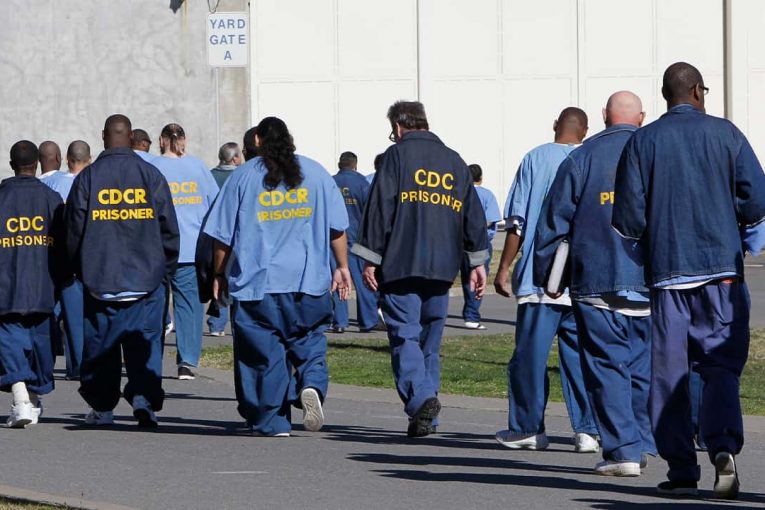

By Matthew Keys
A media advocacy group has sent a letter to California Gov. Gavin Newsom urging him to address a rapid increase in coronavirus infections at San Quentin state prison.
The letter, sent to the governor’s office on Monday and released publicly later that evening, was penned by Ben Trefny, the head of the Northern California chapter of the Society of Professional Journalists.
With the approval of the group’s executive board, Trefny wrote the letter on behalf of more than a dozen incarcerated members of SPJ Northern California who work with media partners outside the prison’s walls to produce news stories and other forms of journalism on prison life.
“We are gravely worried about the health of our colleagues,” Trefny wrote. “We have been concerned for them since the beginning of this pandemic, but it now appears that a transfer of prisoners from another institution may have sparked a very dangerous outbreak.”
Infection numbers at San Quentin prison have spiked over the last month. More than 400 inmates have tested positive for the novel coronavirus COVID-19 as of Tuesday, according to public data from the California Department of Corrections and Rehabilitation.
This follows a trend of increasing infections throughout the CDCR prison system since officials began responding to the health crisis in March. Since then, more than 31,000 inmates have been tested for COVID-19. As of Tuesday, 3,800 inmates — or 1 in 10 tested — have been infected with the virus.
Of the 3,800 positive cases, 1,880 inmates have recovered from COVID-19. No inmate at San Quentin has recovered from the virus, according to CDCR’s data.
In March, Gov. Newsom issued an executive order that was intended to reduce the infection rate among inmates at state prisons. The order directed CDCR officials to stop transferring adult and juvenile inmates from county jails into state facilities.
The order was capped at 30 days, though it allowed CDCR officials to extend the suspension of transfers for another 30 days if officials felt it was necessary to protect the health and welfare of state and county inmates.
It isn’t clear if CDCR officials ever extended the suspension, and no information was available on the CDCR’s website about any order for an extension in April, May or June.
Transfers did resume after the scheduled lapse in order, according to media reports, with nearly 200 prisoners from Chino and other facilities being sent to San Quentin.
Around the same time, infection cases started to rise — from zero reported cases at the beginning of June to more than 400 just three weeks later.
In a phone call on Tuesday, Trefny said SPJ Northern California could not definitively link the transfers to the spike in infections, though he speculated that was the case and pointed to comments made by a federal judge last week that suggested the same.
Hearing what inmates have experienced at the prison since the transfer has been difficult, Trefny complained, because reaching SPJ members at San Quentin has been nearly impossible since the facility went into lockdown three months ago.
“Their phone access is restricted,” Trefny said. “We usually communicate with them through the education center, which is where all the media programs take place, and the education center has been closed since this began.”
Trefny said SPJ Northern California members typically hold monthly meetings with Rahsaan “New York” Thomas, the president of the satellite chapter at the prison who was a finalist this year for the Pulitzer Prize. But he’s been unreachable since the start of this crisis too, Trefny said.
In the letter sent to Newsom on Monday, Trefny wrote that it was now more critical than ever for inmates within San Quentin to make their voices heard. He urged Newsom to immediately “facilitate their ability to write, record and share their stores outside of San Quentin” in a way that would keep them safe.
Trefny also urged Newsom to consult with medical experts on ways to slow the spread of COVID-19 within San Quentin and elsewhere and to provide medical care and safe, isolated spaces to inmates who are infected. He further urged the governor to find alternatives to incarceration, including home confinement and early release.
“We cannot let the cost of addressing this crisis override the cost in human lives,” Trefny said. “Whatever is done needs to be done quickly and without spreading the problem to other prison populations.”
So far, Trefny says, no one from the governor’s office has responded to his letter.
—
Matthew Keys is an award-winning journalist based in Solano County, California.